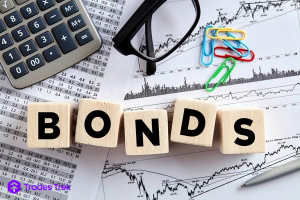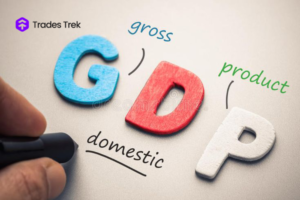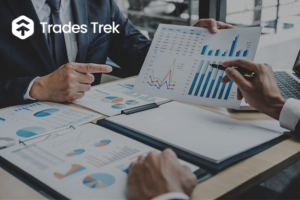Bonds are fixed-income securities that represent debt.
Bonds are financial securities that represent debt and one of the main asset classes on the stock market. And just like every other asset on the stock market, investors buy bonds to earn interest. Typically, buying a bond means lending money to the issuer, which could be a company or the government. Investing in bonds is not just a means to diversify your investment portfolio. But it also provides a source of predictable income as bonds always come with a fixed maturity date and an interest rate set within a specific period.
Types of Bonds
The various types of financial bonds on the stock market differ in their purpose and issuer.
Government Bonds
Government bonds are considered the safest bonds to invest in because they are issued by government entities. Investors who buy international government bonds, often benefit from currency fluctuations depending on the direction of these fluctuations. However, some investors may suffer losses investing in international government bonds due to political instabilities and unfavourable currency exchange rates.
Corporate Bonds
Corporate bonds are issued by companies or organisations to raise capital. Investors either private or institutional that buy these bonds are choosing to lend money to these corporations with the promise of a refund with interest. Although corporate bonds come with significantly high yields, it is seen as risky, because your money is at the mercy of the integrity of the company.
Municipal Bonds
Municipal bonds are issued by countries, states and cities to fund public projects like school buildings, infrastructure development and so on. Investors in higher tax brackets are often attracted to municipal bonds because interest earned is exempted from taxation.
Zero-Coupon Bonds
Zero coupon bonds are different from traditional bonds in how they work. Instead of accumulating interest over a fixed period. Zero Coupon bonds are sold at a discount to investors and redeemed to full value at the maturity date. Investors make a profit by taking advantage of price changes.
Convertible Bonds
Convertible bonds give the holder the option of converting bonds into common stock shares. Offering investors, the potential of capital appreciation if stock value appreciates.
Green Bonds
Green bonds are just like regular bonds but differ in their purpose. They are issued to fund environmentally friendly projects such as pollution reduction, green initiatives and so on. Investors in green bonds have the advantage of helping the environment while earning interest.
High Yield Bonds
High-yield bonds are a form of corporate bonds. Although they offer higher interest rates, they are also considered very risky. Investors seeking greater returns often go for these bonds.
How Do Bonds Work?
When organisations or government bodies need to raise capital to finance projects or refinance debts, they issue bonds. The issuer (borrower) issues a bond alongside the terms of the agreement which includes; the amount to be borrowed, maturity date and interest rate.
For example; Company A needs to raise capital for a new expansion project and decides to issue bonds to that effect. Company A then decides to issue out N10,000 bond with a 5% annual interest and a maturity date of 2 years. This means as an investor in this bond, you will get N500 interest annually and after 2 years Company A pays you back N11,000. Which is your principal investment and your accumulated interest.
Throughout the tenure of a bond, its value may fluctuate based on several factors such as market conditions, changes in interest rate and the creditworthiness of the issuer. An increase in interest rate results in a decrease in bond value, as newer bonds will offer better returns. Conversely, if interest rates fall, the value of bonds increases, as the fixed interest rate becomes more appealing. Depending on market conditions, selling a bond before the maturity date can lead to capital gains or losses.
FREE STOCK-TRADING SIMULATOR
Get started trading in a virtual environment before risking real cash. Download the Trades Trek Stock-Trading Simulator available on Android and IOS and get 500,000NGN in virtual cash to get started today!!! Become an expert investor for free with no capital investment.




